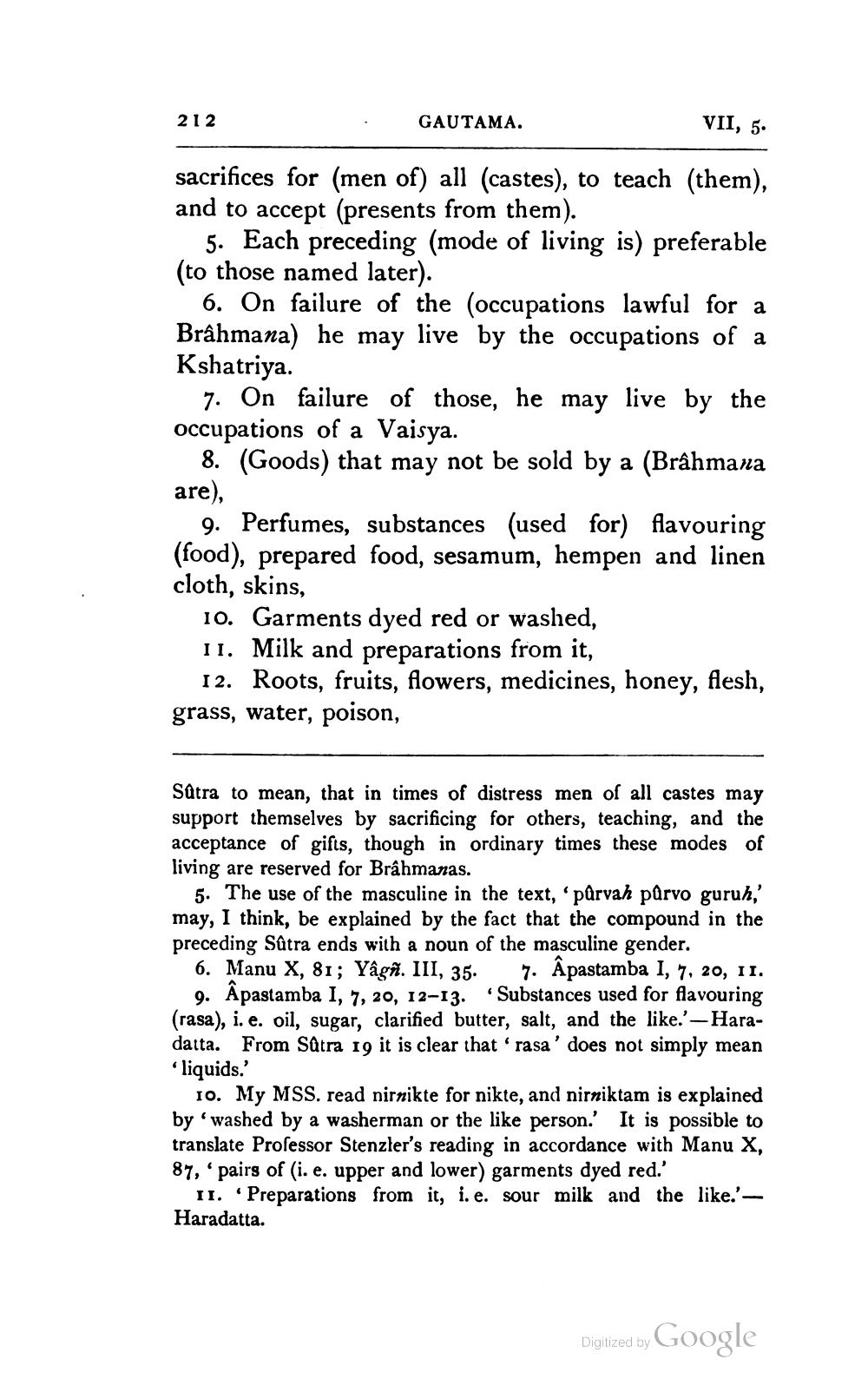________________
212
GAUTAMA.
VII, 5.
sacrifices for (men of) all (castes), to teach (them), and to accept (presents from them).
5. Each preceding (mode of living is) preferable (to those named later).
6. On failure of the occupations lawful for a Brâhmana) he may live by the occupations of a Kshatriya.
7. On failure of those, he may live by the occupations of a Vaisya.
8. (Goods) that may not be sold by a (Brâhmana are),
9. Perfumes, substances (used for) flavouring (food), prepared food, sesamum, hempen and linen cloth, skins,
10. Garments dyed red or washed, 11. Milk and preparations from it,
12. Roots, fruits, flowers, medicines, honey, flesh, grass, water, poison,
Satra to mean, that in times of distress men of all castes may support themselves by sacrificing for others, teaching, and the acceptance of gifts, though in ordinary times these modes of living are reserved for Brahmanas.
5. The use of the masculine in the text, pūrvah pūrvo guruh,' may, I think, be explained by the fact that the compound in the preceding Sûtra ends with a noun of the masculine gender.
6. Manu X, 81; Yâgî. III, 35. 7. Âpastamba I, 7, 20, 11.
9. Apastamba I, 7, 20, 12-13. Substances used for flavouring (rasa), i.e. oil, sugar, clarified butter, salt, and the like.'-Haradatta. From Sätra 19 it is clear that rasa' does not simply mean liquids.'
10. My MSS. read nirnikte for nikte, and nirniktam is explained by 'washed by a washerman or the like person. It is possible to translate Professor Stenzler's reading in accordance with Manu X, 87, pairs of (i. e. upper and lower) garments dyed red.'
II. Preparations from it, i.e. sour milk and the like.'Haradatta.
Digitized by Google




